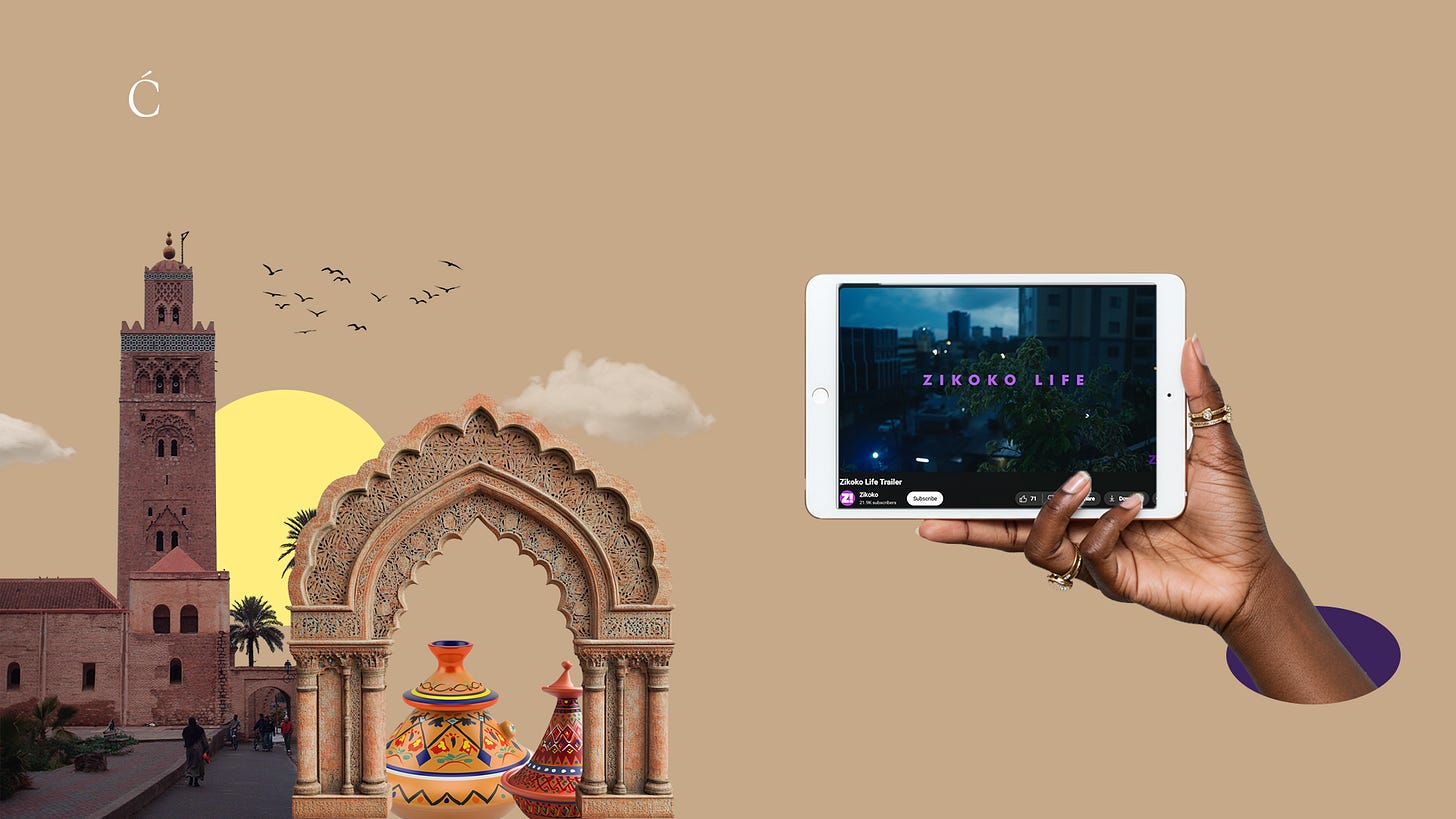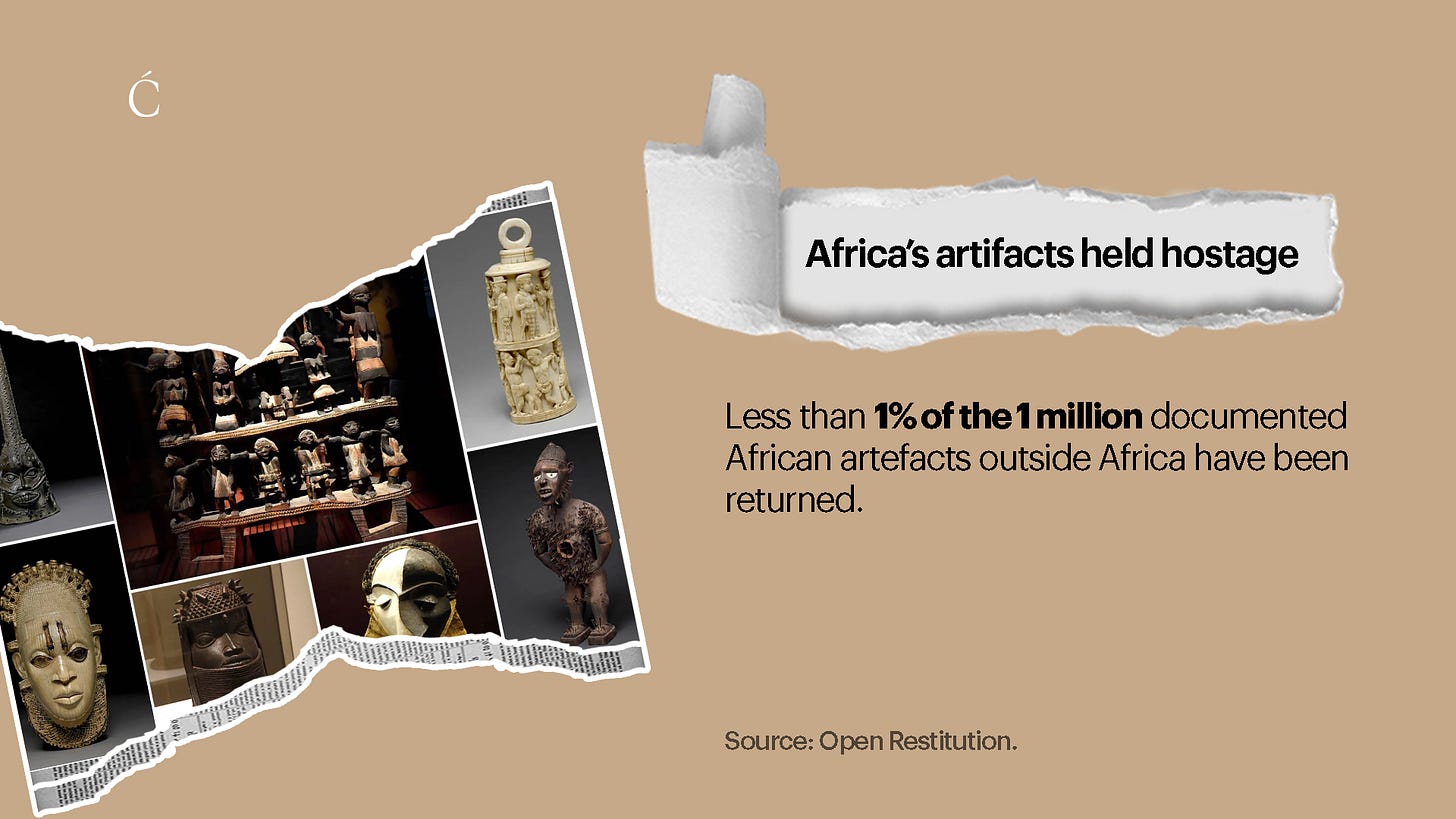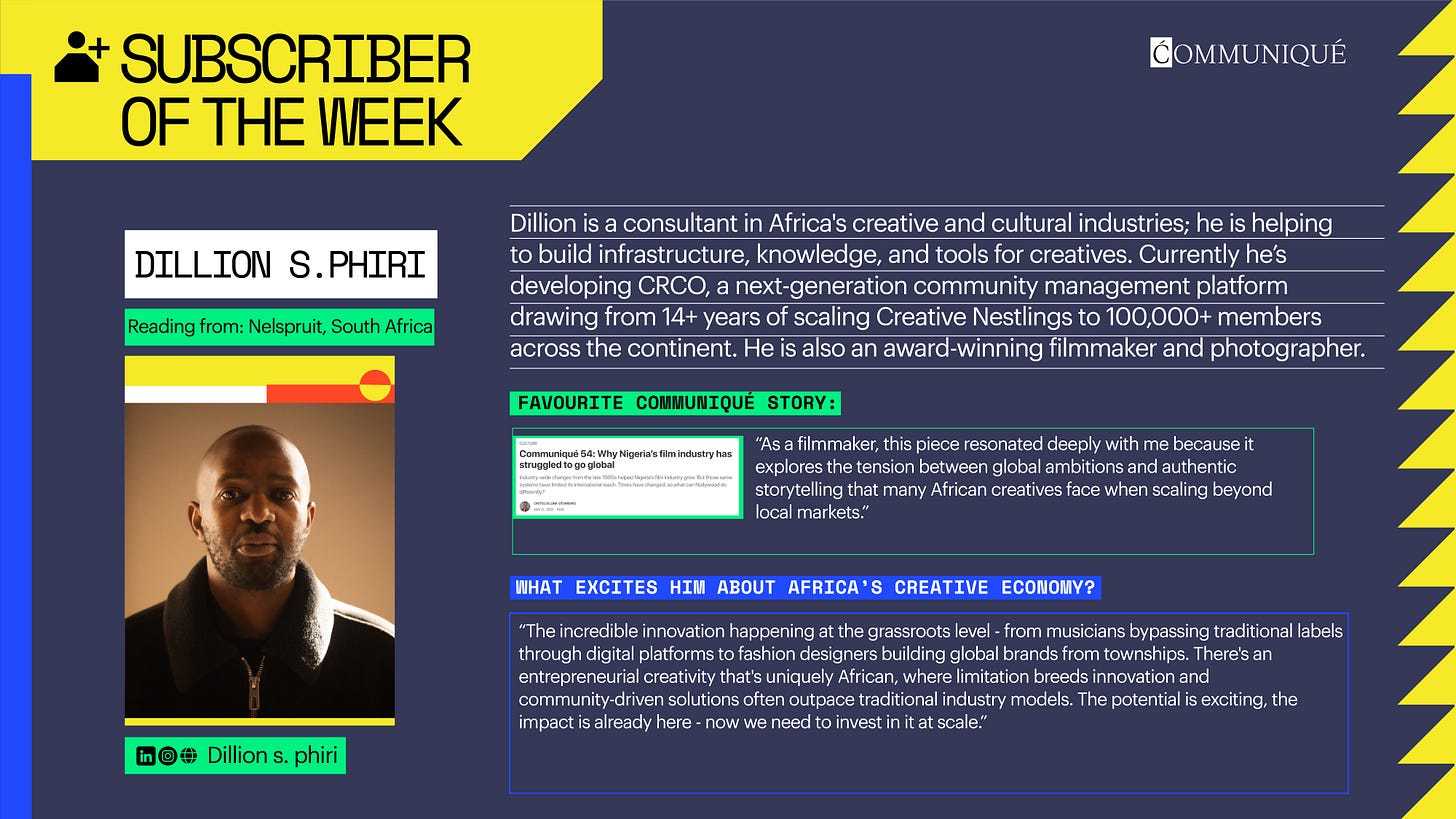Morocco wants its cultural artifacts to stay home + Big Cabal Media’s cinematic ambitions
We examine Morocco’s efforts to halt the illegal trade of its cultural artifacts and the deeper plot behind BCM’s foray into filmmaking.
Presented by Africa Creatives Alliance
Hello!
As we step into the second half of 2025, we’re kicking things off with a story rooted in heritage and preservation.
In today’s Digest, we discuss
Morocco’s plan to keep its cultural treasures within its borders
Big Cabal Media’s cinematic ambitions
Center Spread 🗞️
Morocco’s plan to stop the illegal trade of its cultural artifacts
On Monday, Morocco’s Minister of Youth, Culture, and Communication, Mohamed Mehdi Bensaid, declared the country’s firm stance in the fight against cultural trafficking. Speaking at an international conference in Raba, Bensaid stated that the government is closing legal loopholes, tightening enforcement, and aligning with international frameworks, such as the 1970 UNESCO Convention. He also emphasized the role of customs in combating this global crime.
Morocco views cultural heritage not merely as a collection of objects, but as a living symbol of human civilization. “These treasures carry the memory of humanity,” Bensaid stated, urging stronger global coordination to dismantle trafficking networks that exploit weak oversight and digital loopholes.
Over the last few years, there have been renewed efforts across North Africa and the continent as a whole to recover stolen artifacts. In May 2025, Egypt announced the return of 25 rare smuggled items from the United States and an additional 20 items from Australia, as part of a broader effort by the Egyptian government that has resulted in the recovery of over 30,000 pieces since 2014.
The calls for the repatriation of looted artifacts are also yielding fruit. Last weekend, Nigeria received 119 Benin bronzes that the Netherlands had promised to return in January. The Nigerian US Embassy also received the return of two other Benin art pieces from the Museum of Fine Arts, Boston (MFA).
But as Morocco shows, the next stage is prevention. Tourism plays a vital role in the country’s economic strategy, and cultural heritage is one of its strongest assets. From ancient medinas and traditional souks to UNESCO World Heritage sites, Morocco offers experiences that appeal to adventure seekers, history enthusiasts, and cultural tourists alike. In 2024, it overtook Egypt as Africa’s top tourist destination, earning $11 billion from 17.4 million visitors. The government aims to double that figure by 2030.
Big Cabal Media’s cinematic ambitions
Big Cabal Media’s Zikoko will premiere a three-part film anthology, Zikoko Life, on its official YouTube Channel on July 12.
The film anthology is based on the publication of popular serials, Naira Life, Love Life, and Sex Life. It was created by Antia E. Eboigbe, BCM's Chief Operating Officer (COO), and produced by Blessing Uzzi of Bluehouse Studios.
“We wanted to expand Zikoko's emotional universe and give these real-life truths the space they deserve, that is cinematic, beautiful, and disruptive,” Eboigbe said.
There are three standalone films in the series: What’s Left of Us, My Body, and Something Sweet. It stars Nollywood talents like Uzoamaka Power (Mami Wata, MTV Shuga), Caleb Richards (Beyond the Veil), and Tolu Asanu (Mr & Mrs Okoli).
Meanwhile, this move signals BCM’s growing audiovisual ambitions. It builds on the May 2025 launch of Zikoko’s docuseries, which chronicles the lives of diverse Nigerian women. To date, three episodes of the series have been released, collectively garnering nearly 20,000 views on YouTube.
But there might be a deeper thing at play here. In Communiqué 27, following its $2.3 million capital raise in 2022, we noted BCM, via Zikoko, has built a massive content IP library it could explore to expand its business and revenue base.
“Suppose it can repurpose some of its Naira Life, Sex Life, or Abroad Life hits into successful multimedia projects. In that case, it can head into conversations with streaming platforms like Netflix, YouTube, and Prime that are hunting for high-quality, high-impact African content.”
BCM is doing precisely that. We'll be watching closely to see where this strategic shift leads, and whether it unlocks the revenue opportunities we predicted.
Crunch Time 📈
Catch Up 📬
How MDIF is helping independent media thrive
Communiqué has long championed alternative approaches to capital deployment in the media industry (see issues 36 and 60). Last week’s essay outlined a blueprint for how funding can be more effectively channelled into media and the broader creative economy. This week, we take that conversation further by spotlighting a real-world initiative already doing just that for independent media companies: the Media Development Investment Fund (MDIF).
MDIF offers something different from what traditional VC and nonprofit models do for media companies. It provides capital in a way that enables media businesses to build sustainable and impactful operations.
Read the full story here.
Communiqué’s Subscriber of the Week 🤩
Curiosity Cabinet 🗄️
Still on Big Cabal Media’s innovation: TechCabal Insights is launching an AI chatbot trained on hundreds of African tech news reports and research data. Join the waitlist.
The thesis of Screen Connect, a Pan-African film distribution initiative, according to its co-founder, Cassandra Onwualu, is that cross-border theatrical releases for African films should be sustainable.
The narrative that “Made in Africa is expensive” can be turned on its head if African creatives collectively assert their uniqueness and develop integrated ecosystems.
This is how a South African music mogul turned the basic “tring-tring” ringback you hear during phone calls into a revenue-generating tool by replacing it with popular music tracks.
Here are the upcoming events in Africa’s creative economy.
The second edition of the Morocco Gaming Expo is currently underway in Rabat. It started on July 2 and will end on July 6.
See what else is happening across the continent via Communiqué’s African Creative Economy Database.
That’s it for this week’s Digest. See you next week.






